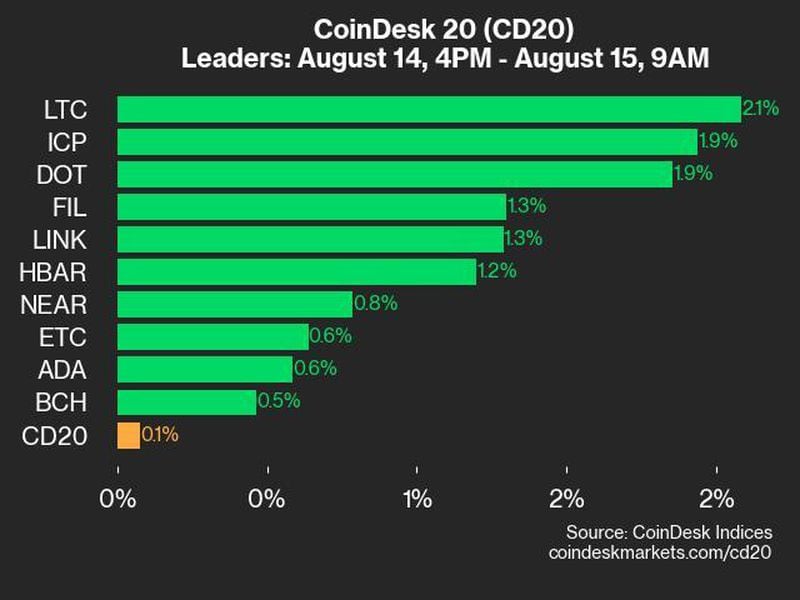Weekly Bitcoin Price Indicator Shows ‘Bear Cross’ in First Since February

View
- Bitcoin’s weekly moving average convergence divergence histogram has turned bearish for the first time in seven months. Even so, sellers need to observe caution as that indicator had trapped bears on the wrong side of the market during the 2015-2017 bull run.
- A bull revival, however, would be confirmed if and when prices find sustained acceptance, preferably a weekly close (Sunday, UTC), above $12,000.
- Short duration charts continue to call a move lower to $9,500. The bearish case would be negated if prices invalidate the lower highs setup seen on the daily chart with a move above $10,956 (Aug 20 high on Bitstamp).
A widely-tracked trend-following bitcoin (BTC) price indicator is flashing a sell signal for the first time since February.
The weekly moving average convergence divergence (MACD) histogram, which is used to identify trend reversals and trend strength, has crossed below zero and is currently printing a value of -25.13.
That is the first negative value since the first week of February. Back then, BTC was trading at $3,700. As of now, the leading cryptocurrency by market value is changing hands at $10,340 on Bitstamp, representing 2 percent gains on a 24-hour basis.
The histogram crossing below zero is considered a sign of the beginning of a new downtrend, while a move above zero is taken as confirmation of a bearish-to-bullish trend change.
MACD’s bearish crossover

Histogram’s latest drop below the zero lines indicates the rally from lows near $3,700 seen in the first week of February topped out at $13,880 in June and the bears have regained control.
Many observers consider MACD histogram as a lagging indicator. After all, it is a spread between two moving averages (MAs), which are based on past data.
Also, MACD’s bearish crossovers marked an end of corrective pullbacks during the 2015-2017 bull market, as tweeted earlier today by popular analyst Murad Mahmudov.
MACD a contrary indicator

Bitcoin bottomed out in January 2015 near $150 and rose to a record high of $20,000 in December 2017. Throughout the bull run, BTC charted bullish higher lows with histogram’s dip below zero (bearish crossover).
Put simply, MACD’s bearish turn marked an end of corrective pullbacks and what followed was rise to fresh highs.
For instance, BTC’s pullback from the November 2015 high of $502 ended near $360 with the weekly MACD falling below zero in February 2016. The cryptocurrency then picked up a strong bid in April and rose to highs near $800 by mid-June 2016.
On similar lines, BTC charted a higher low at $592 with the MACD’s bearish turn in the first week of August 2016. Further, the negative MACD bar seen in March 2017 turned out to be a bear trap.
So, the latest bearish crossover on the MACD is a strong reason for sellers to observe caution – more so, as BTC is in a long-run bull market, as stated by Mahmudov.
That said, the outlook would turn bullish if and when BTC prints a weekly close (Sunday, UTC) above $12,000.
Weekly chart

BTC fell 10.49% in the second week of this month, strengthening the case for a deeper pullback put forward by the repeated failure to close above $12,000 seen in the preceding weeks.
Essentially, the rally from lows near $4,050 seen in April has stalled near $12,000 and a weekly close above that level is needed to confirm bullish revival.
Daily and 4-hour charts

Bitcoin has consistently found takers below $10,000 over the last eight weeks (above left).
However, recovery rallies from sub-$10,000 levels have been shallow, as represented by the falling trendline. That indicates a weakening of bullish momentum.
The cryptocurrency’s inability to produce a stronger bounce from the 100-day moving average (MA) support line is also a cause of worry for the bulls.
Further, the rising wedge breakdown, a bearish reversal pattern, witnessed on the 4-hour chart (above right) last week is still valid.
All-in-all, the cryptocurrency remains in the hunt for a drop to the recent low of $9,467. The bearish case would weaken if prices rise above $10,956 (Aug. 20 high), invalidating the lower highs pattern on the daily chart.
Disclosure: The author holds no cryptocurrency assets at the time of writing.
Bitcoin image via Shutterstock; charts by Trading View









